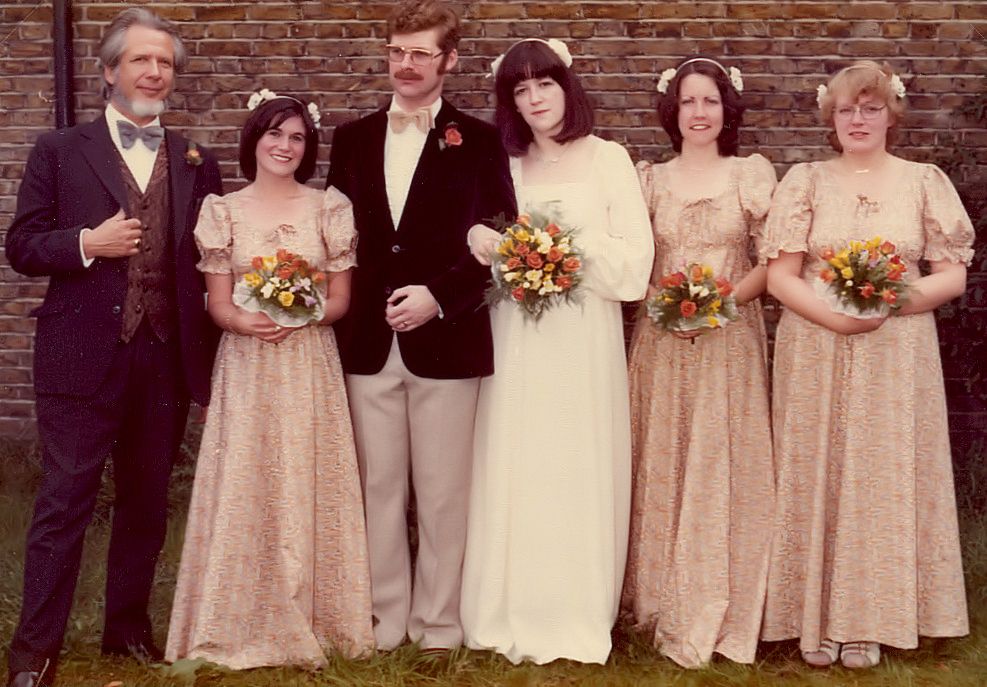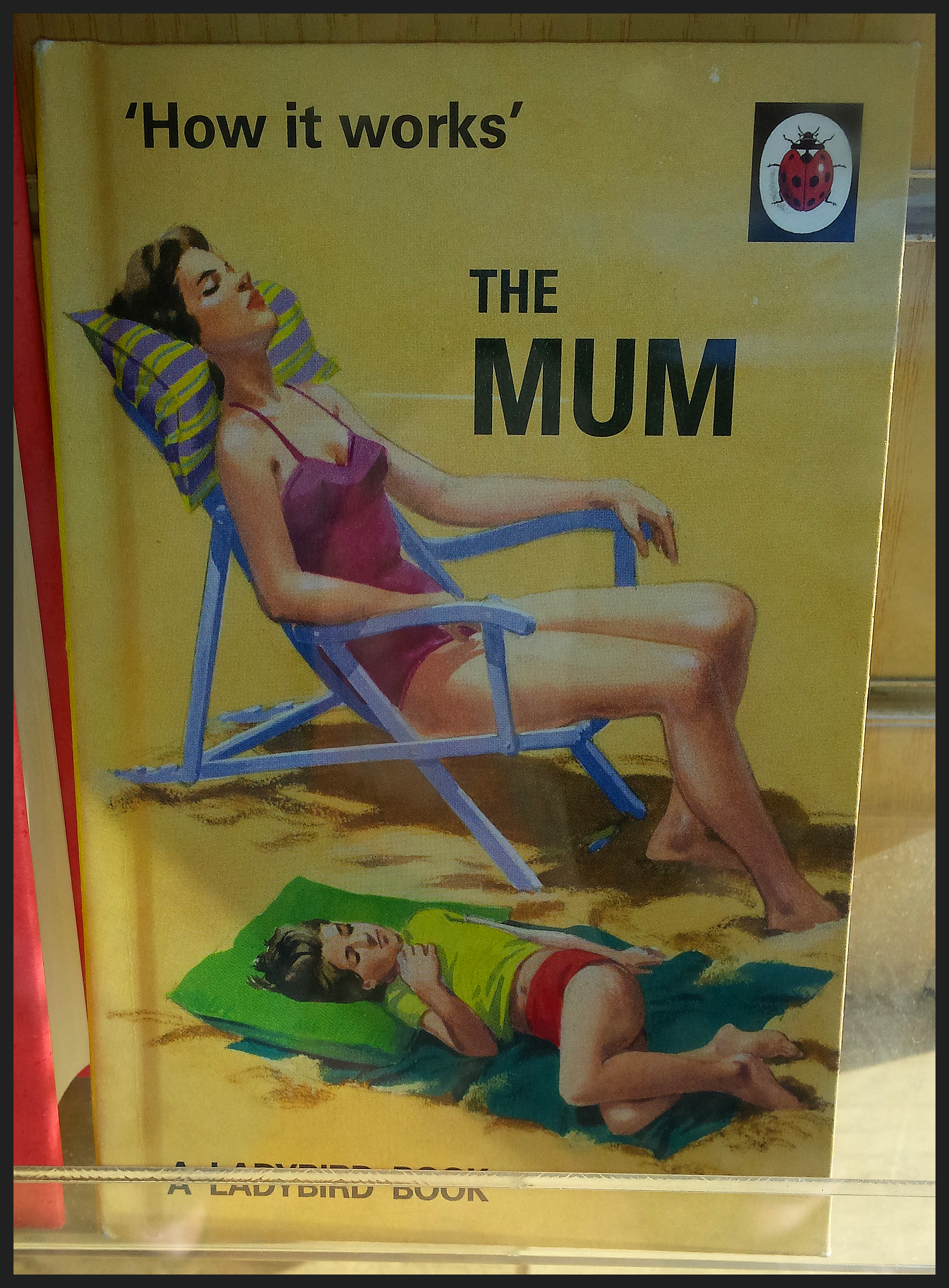As of about 3 o’clock this afternoon, Noreen and I have been married for 37 years! Eeeeekk!
That’s 10 years more than we haven’t been married!
I can’t decide whether if feels like forever or feels like for never. It just is; it’s like an old shoe that is so comfortable you don’t know you’re wearing it. Although like all shoes you get a stone in it occasionally — indeed, contrary to the usual tenet, marriage is a bed of roses: it looks pretty but has thorns too!
Back in 1979 we were still coming out of the hippie-ness of the 60s and 70s, and we were still students at heart — we still are! So we did the wedding our way, slightly eccentrically. There wasn’t a lot of money around — the country was crawling its way out of recession, we didn’t have any spare money, neither did Noreen’s mother, nor my parents. So we did it all ourselves, made it all up as we went along, did our own thing, very simply, and still had a good time.
We were married at St Peter’s, Acton Green; at the north end of Chiswick where it merges into Acton. We had been living there for about 4 months, and going to church, so it seemed sensible to get married there. St Peter’s was Anglo-Catholic, and sufficiently high church that it even satisfied our RC friends.
We lived just 400 yards from the church, so we walked to church, from our flat. No, cars; what’s the point when it is less than a 5 minute walk? My best man was my friend Victor, from my post-grad days, who was old enough to be my father. Noreen had three “maids of honour” all her own age — friends from school and university — and all four had made their own frocks. Noreen was given away by another university friend, her mother did the flowers and one of my aunts made a cake.

The reception was in the church hall next door and the vicar (who was later unfrocked!) made us a present of his fees. So the only think we had to pay lots of good money for was the caterer and the wine. And a few days away in Salisbury.
Total, a few hundred pounds. All in contrast to weddings, even then, which were costing thousands. And worse today when tens of thousands get spent.
Ah and like today, it was a lovely, bright, sunny, warm day.
Every year on our anniversary, Noreen and I look at each other and ask “How have we done it?”. We still don’t know! But I did wonder today, to Noreen, whether we might manage another 37 years. Now that would be something as we’d both be over 100!






